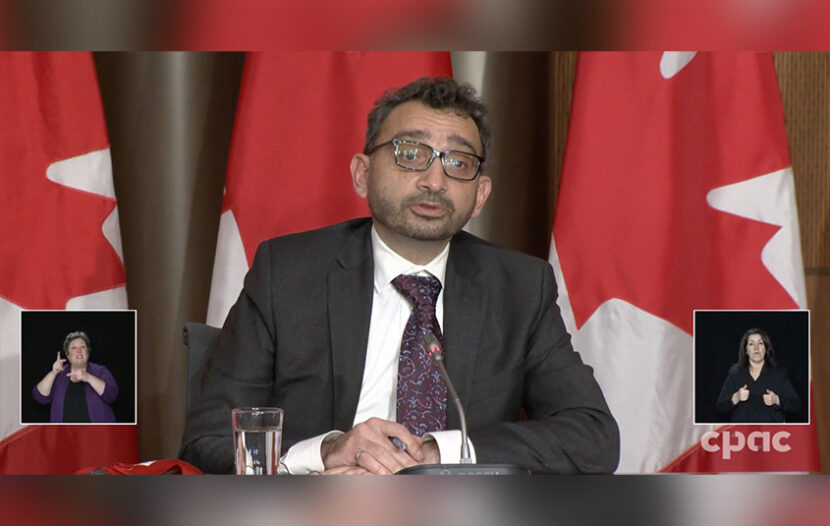OTTAWA — All air arrivals to Canada, except from the U.S., must now be tested on arrival at their airport in Canada and isolate until the results of their test are known.
This applies even to fully vaccinated travellers.
The news was part of the federal government’s announcement today about three more countries added to the watch list, out of an abundance of caution about the omicron variant.
“All air travellers coming from outside Canada, apart from the U.S., will now need to be tested at the airport in which they are landing in Canada,” said Health Minister Jean-Yves Duclos at a briefing this afternoon. The new rule applies even to fully vaccinated travellers. “They need to isolate themselves until they get the results of their tests,” said Duclos.
The announcement is a blow for the travel industry that is just getting back on its feet. There’s no word on how Canada’s airports – more of which just reopened to international travel today – will handle the massive volumes of testing.
3 COUNTRIES ADDED TO OMICRON WATCH LIST
The federal government is adding three more countries to its watch list out of an abundance of caution about the omicron variant.
Arrivals from Egypt, Malawi and Nigeria will now be subject to the same protocols as arrivals from the seven countries announced last week: South Africa, Lesotho, Botswana, Zimbabwe, Mozambique, Namibia and Eswatini.
As announced last Friday, Nov. 26, these new protocols now apply to all 10 countries, effective tonight …
- Foreign nationals who have travelled to any of the 10 countries in the past 14 days will be barred from entering Canada
- Canadians and permanent residents returning to Canada from any of the 10 countries must be tested before departure or at their last transit point, and tested again upon arrival in Canada, and quarantine upon arrival in Canada until the results of the test are known. Unvaccinated arrivals from these countries must complete the full quarantine.
“The pandemic is not over,” said Transport Minister Omar Alghabra.
Minister Alghabra added: “I also want to remind Canadians to get vaccinated, to follow Public Health advice, and if they are thinking about travelling, to recognize that travel measures could change at any moment.”
Also at the briefing, Marco Mendicino, Minister of Public Safety and Emergency Preparedness, said that in the face of omicron and potentially other variants, the federal government is also “working quickly with the provinces and territories to determine how we could expand testing capacity to include all travellers, from all countries, including the U.S., from both land and air, if needed in the future.”
REPORTERS ASK ABOUT BLANKET TRAVEL BANS
During the Q&A session, a reporter asked if Canada would consider another blanket travel ban.
Minister Mendicino said: “The government will never hesitate to put in place the protections that are necessary to protect Canadians from the virus. That includes putting in place travel restrictions, including for those who are transiting through the listed countries, three of which we’re adding today. It includes making sure we have the necessary testing regime. It includes making sure that we have a baseline of protection with vaccinations, which is the best and first line of defence against the virus… We believe that the measures that we have in place are appropriate. We know that Canadians are going to watch this very closely, as we are, and we’ll take whatever decisions are necessary.”
Another reporter asked the travel ban question again.
In response, Health Minister Duclos pointed to what is in effect a triple layer of protection for Canadians. He gave the example of a traveller coming into Canada from one of the 10 omicron watch-list countries via a transit point in the UK. That traveller, he said, would be subject to the UK’s travel safety protocols, and would then need to show results of a negative 72-hour PCR test to board their flight back to Canada, and would then be tested again upon arrival in Canada. “Canada has a level of strength you rarely see in other countries,” said Minister Duclos.

